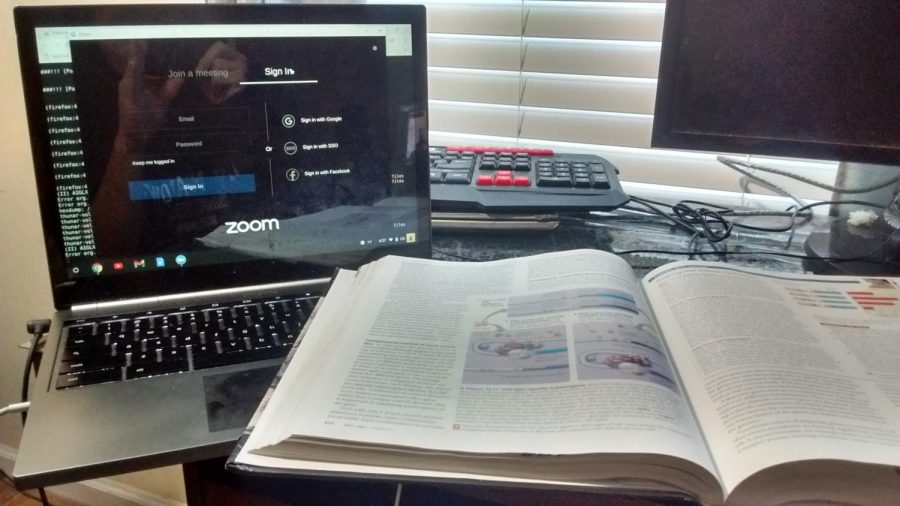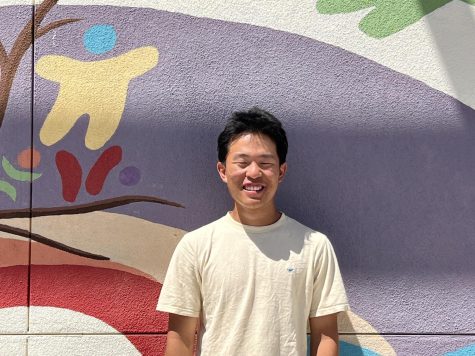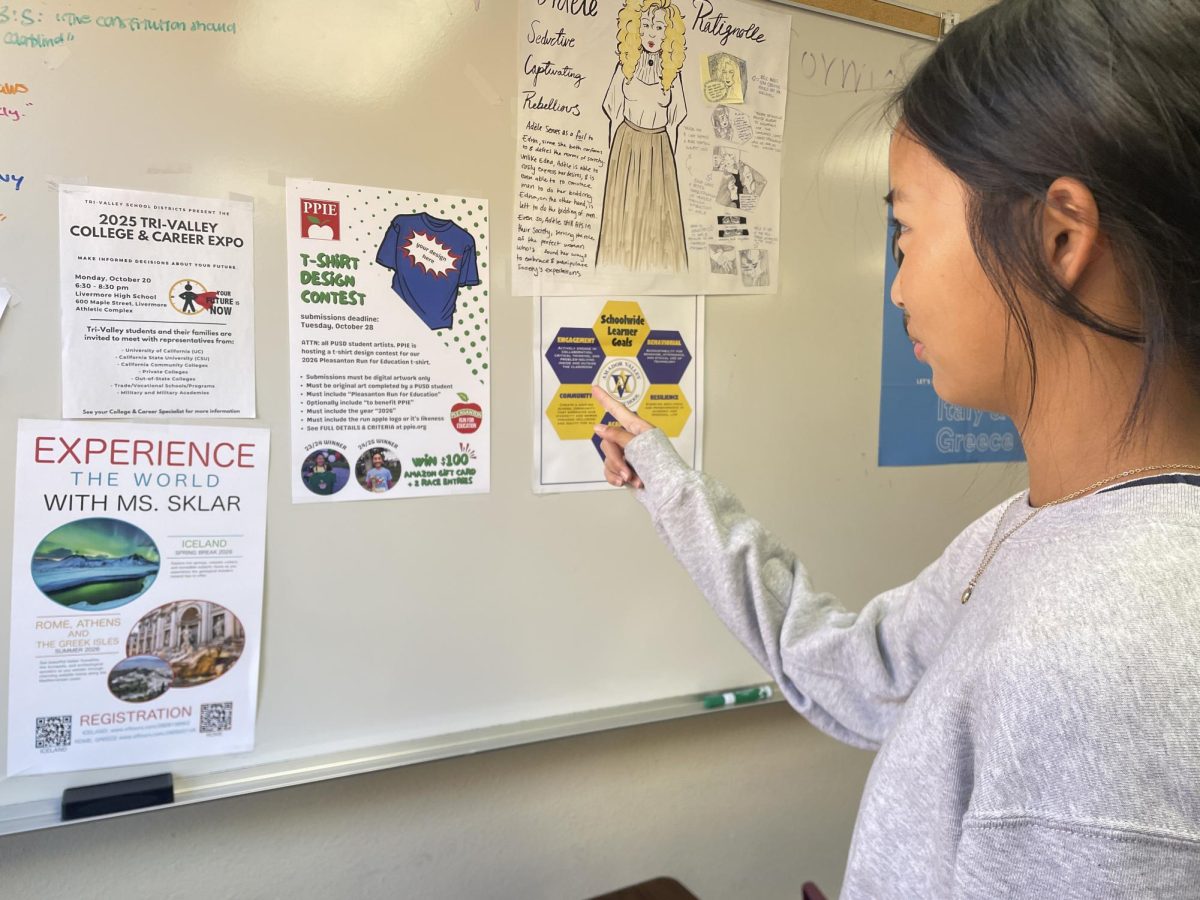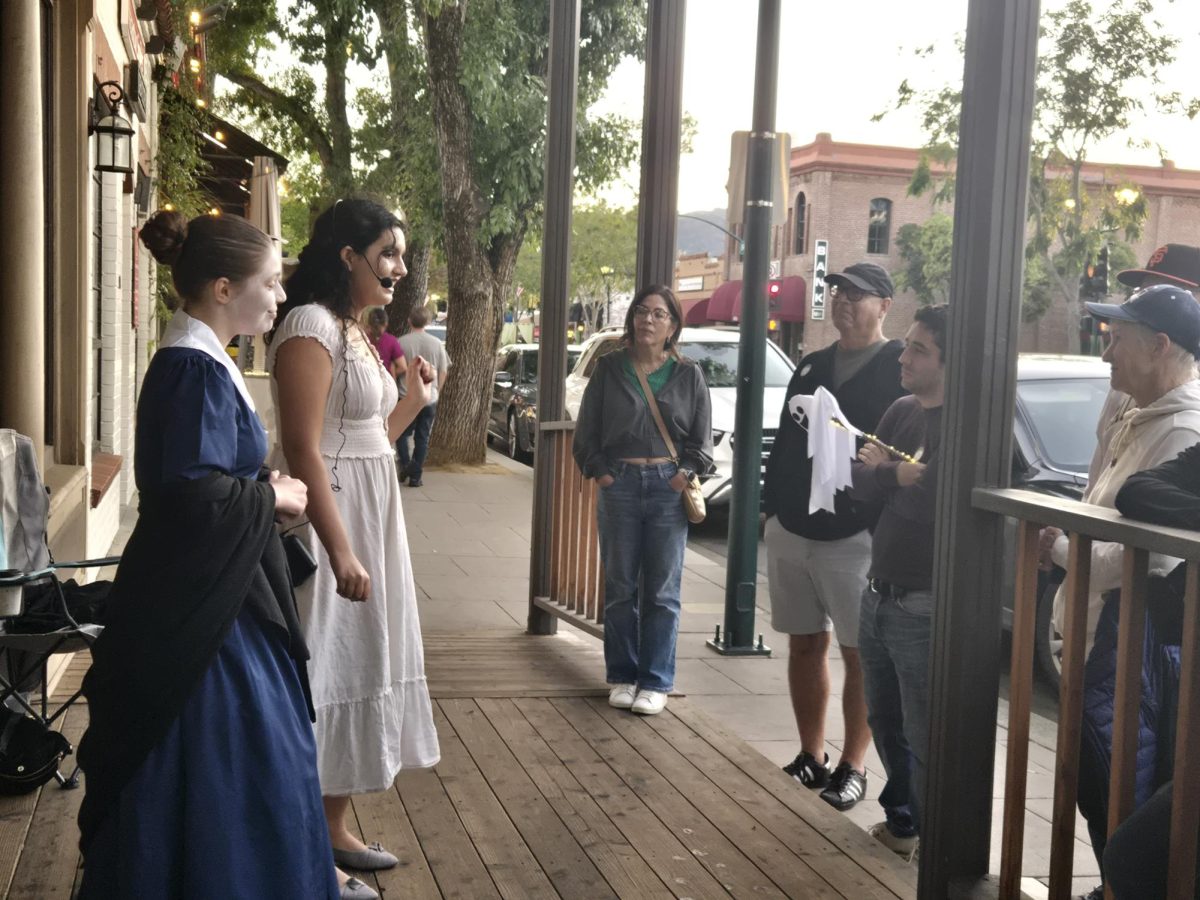Why Amador will not return to online learning despite the Omicron surge
Distance learning and morning Zooms are a long way off, despite Omicron’s high transmission.
January 24, 2022
As Omicron spreads through America at unprecedented levels in the new year, the Pleasanton Unified School District is unlikely to close down school, sticking by its policy of in-person schooling as long as possible.
“At this point, [the closure of school] is not likely,” said Biology teacher Cora Da Costa Pereira. “There’s too many variables to account for, and a lot of kids don’t learn so well online.”
In the PUSD community, Omicron’s effects can be felt. Within the first week back to school, attendance rates dropped from 97 percent to 87. As of now, in the second week back, that number has dropped even further down towards close to 80.
“If I had to give an estimate, I’d say that in every one of my classes, 4 to 6 people are absent everyday. They might be skipping, but it’s probably COVID-19,” said Chao–Wei Hsu(‘23).
The testing center behind Hart Middle School has exploded and become flooded with students and staff, suffering staff shortages and accommodating more than a thousand people per week. Due to this, the district changed the policy so that in order to test, you must have symptoms.
“We used to have a lot of cars, so much where there would be traffic jams backing up Las Positas,” said PUSD Pandemic Services Coordinator Kelly French. “Now, that pressure and staff shortage has been relieved a bit with the change in testing requirements.”
While PUSD positivity rates are incredibly low compared to other California districts, at an estimated 10 percent while the state sits around 20, concern over what exactly the barrier will be deemed as too much or too little has risen.
“I am really proud of our community for being so vigilant at testing. Sure, traffic jams[near the testing site] and test kit shortages were problems, but it means that the community is looking to avoid the virus,” said Hannah Mestel, Pandemic Services worker.
Gavin Newsom made a statement in an interview with Fox News that he vowed to keep schools open.
“As we approach the new year, we reaffirm our shared commitment to one another, to our parents and to our students: to keep each other safe and to keep our classrooms open,” said Newsom.
Last year’s decision to retreat into homes and start remote learning was largely unpopular with the public, despite its obvious necessity, as shown in a Los Angeles poll.
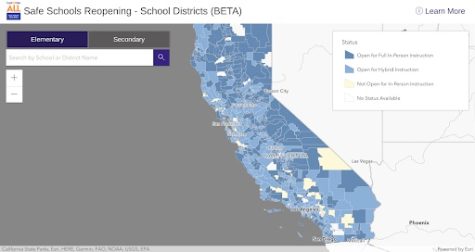
“Online school was not fun. My schedule and my grades were messed up, and I missed my friends,” said Hsu.
Wanting to avoid a rehash of the dissatisfaction and potentially another recall as Omicron also hits the state economy, authorities on the statewide and district level have vowed to keep schools open.
“I’d heard that the higher ups definitely want to keep the schools open, for better or for worse,” said Hsu.
The most likely outcome is that unless COVID-19 gets significantly worse, in-person school is a guarantee. It’s up to the students themselves to maintain restrictions and to make sure they both receive an education while being safe.
“As an educator, I want kids to go to school. They don’t learn so well online. As a mom, I’d rather my kids stay home, but they can’t so I buy them better masks and teach them to take it seriously,” said Da Costa.
Certain measures have been taken as well, including the state issuing test kits for every student, and recommendations for better mask policies.
“I could understand why the district doesn’t want to accommodate it. They get fined nearly 2 and a half million every day that in-person school is out of session,” said Da Costa.
However, for the most part, Omicron has less severe symptoms and a much lower mortality rate. Frequent testing on behalf of the district has tried to maintain safety for students and staff alike.
“I would like to say that Pleasanton schools are absolutely safe. Safer mask policies and frequent testing means that we have control of the situation, and there’s no reason to feel scared,” said Mestel.

